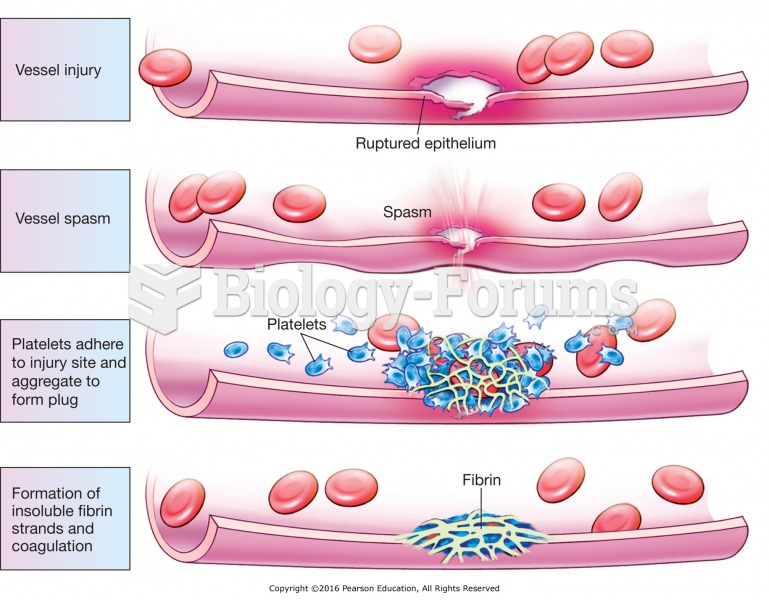|
|
|
The average office desk has 400 times more bacteria on it than a toilet.
Urine turns bright yellow if larger than normal amounts of certain substances are consumed; one of these substances is asparagus.
For pediatric patients, intravenous fluids are the most commonly cited products involved in medication errors that are reported to the USP.
The oldest recorded age was 122. Madame Jeanne Calment was born in France in 1875 and died in 1997. She was a vegetarian and loved olive oil, port wine, and chocolate.
There used to be a metric calendar, as well as metric clocks. The metric calendar, or "French Republican Calendar" divided the year into 12 months, but each month was divided into three 10-day weeks. Each day had 10 decimal hours. Each hour had 100 decimal minutes. Due to lack of popularity, the metric clocks and calendars were ended in 1795, three years after they had been first marketed.







